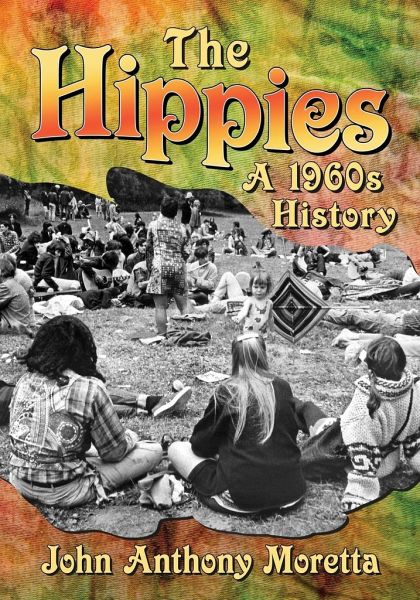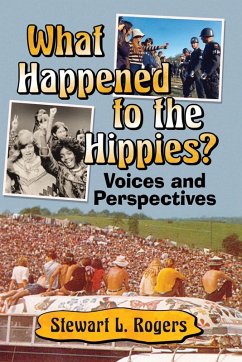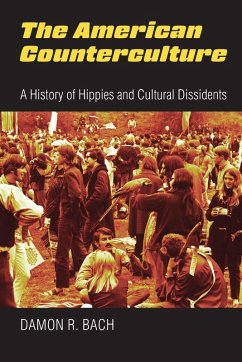
The Hippies
A 1960s History
Versandkostenfrei!
Versandfertig in 1-2 Wochen
42,99 €
inkl. MwSt.

PAYBACK Punkte
21 °P sammeln!
Among the most significant subcultures in modern U.S. history, the hippies had a far-reaching impact. Their influence essentially defined the 1960s--hippie antifashion, divergent music, dropout politics and ""make love not war"" philosophy extended to virtually every corner of the world and remains influential. The political and cultural institutions that the hippies challenged, or abandoned, mainly prevailed. Yet the nonviolent, egalitarian hippie principles led an era of civic protest that brought an end to the Vietnam War. Their enduring impact was the creation of a 1960s frame of reference...
Among the most significant subcultures in modern U.S. history, the hippies had a far-reaching impact. Their influence essentially defined the 1960s--hippie antifashion, divergent music, dropout politics and ""make love not war"" philosophy extended to virtually every corner of the world and remains influential. The political and cultural institutions that the hippies challenged, or abandoned, mainly prevailed. Yet the nonviolent, egalitarian hippie principles led an era of civic protest that brought an end to the Vietnam War. Their enduring impact was the creation of a 1960s frame of reference among millions of baby boomers, whose attitudes and aspirations continue to reflect the hip ethos of their youth.














